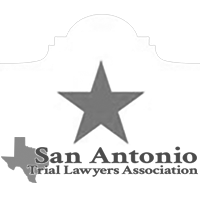Government Contractors That Fail To Pay Prevailing Wages Can Be Violating the Davis Bacon Wage Laws: DBRA Violations Can Be The Basis of a Prevailing Wage Whistleblower Lawsuit by Davis Bacon False Certification Whistleblower Lawyer and Government Contractor Prevailing Wage Fraud Whistleblower Lawyer Jason S. Coomer
Government contractor wage fraud has increased as some government contractors and subcontractors have sought to fraudulently avoid paying the prevailing wage or fringe benefits in violation of the Davis Bacon and Related Act (DBRA). Government Contractors that violate DBRA and/or falsely certify services or goods that they seek payment from the government for can be subject to Federal False Claims Act Lawsuits and required to pay back fraudulently taken money. Whistleblowers that have independent knowledge of fraud committed against the government by government contractors and subcontractors can become American heroes by blowing the whistle on fraud and if they are the first to provide notice of the fraud can recover a portion of the recovered money.
If you are aware of a defense contractor, highway contractor, large health care company, or other large contractor or subcontractor that is defrauding the United States Government out of millions or billions of dollars, contact Texas Government Contractor Fraud lawyer, Jason Coomer, via e-mail or online submission form for a free review of a government contractor fraud qui tam claim.
Government Spending and Government Fraud Lawsuits
In 2008, government spending in the United States moved past $5 Trillion. The increased government spending over the past decade created an environment where many corporations, dishonest government contractors, fraudulent government sub-contractors, and other dishonest people to find to defraud the government out of large amounts of money. Whistleblowers that are aware of fraudulent billing of the government can often work with lawyers and the Department of Justice in exposing criminals, seeking back tax payer money, and preventing future fraud.
The Davis Bacon and Related Acts (DBRA), Federal False Claims Act Lawsuits, and Government Contractor Fraud Lawsuits
The Davis Bacon and Related Acts (DBRA) requires all contractors and subcontractors performing work on federal or District of Columbia construction contracts or federally assisted contracts in excess of $2,000 to pay their laborers and mechanics not less than the prevailing wage rates and fringe benefits for corresponding classes of laborers and mechanics employed on similar projects in the area. The prevailing wage rates and fringe benefits are determined by the Secretary of Labor for inclusion in covered contracts.
In addition to the Davis Bacon Act itself, Congress added Davis-Bacon prevailing wage provisions to approximately 60 laws—"related Acts"—under which federal agencies assist construction projects through grants, loans, loan guarantees, and insurance. (Examples of the related Acts are the Federal-Aid Highway Acts, the Housing and Community Development Act of 1974, and the Federal Water Pollution Control Act.) Generally, the application of prevailing wage requirements to projects receiving federal assistance under any particular "related" Act depends on the provisions of that law.
The U.S. Department of Labor (DOL) has oversight responsibilities to assure coordination of administration and consistency of enforcement of the labor standards provisions of the Davis Bacon and Related Acts. Under this authority, DOL has issued regulations establishing standards and procedures for the administration and enforcement of the Davis-Bacon labor standards provisions. Federal contracting agencies have day-to-day responsibility for administration and enforcement of the Davis-Bacon labor standards provisions in covered contracts for which they are responsible or to which they provide federal assistance under laws they administer.
For more information on the Davis-Bacon and Related Acts (DBRA), please go to the following United States Department of Labor Web Page.
Through government contractor fraud qui tam lawsuits and other federal false claims act lawsuits, whistleblowers, the United States Department of Justice, and fraudulent contractor qui lawyers have helped the government recover billions of dollars that was wrongfully taken through fraud from the government. Often in these cases the fraudulent government contractor has paid off key government official to look the other way and it is essential to have a whistleblower with specialized knowledge of the fraud to expose the contractor fraud. In other cases, the fraudulent government contractor is exploiting a lack of efficient supervision in the bureaucratic system. In these cases, it also typically takes a whistleblower with specialized knowledge to locate the fraud and expose it.
History of Whistleblower Lawsuits, Government Contractor Corruption, and Qui Tam Lawsuits
During the Civil War, corrupt military contractors were defrauding the United States Army out of hundreds of thousands of dollars and putting troops at risk by supplying troops with defective products and faulty war equipment. Illegal price gouging was a common practice and the armed forces of the United States suffered. In response, Abraham Lincoln enacted the Federal Civil False Claims Act. A key provision of the act was known as qui tam.
In times of war corrupt government contractors including corrupt defense contractors sometimes begin to price gouge, provide troops with defective products, misstate what good are provided, and fraudulently take money from the government. This is especially true when no bid contracts allow defense contractors to make huge profits without adequate checks on the goods or services provided.
Government Fraud Lawsuits, Qui Tam Lawsuits, and Qui Tam Lawyers
The "Qui Tam" abbreviation is from Latin and refers to "a person who files a suit for the king as for himself". Qui tam claims have existed for centuries as deceptive government contractors have been around as long as government has contracted with private companies to provide services. Qui tam actions allow a private citizen or whistleblower to file a lawsuit on behalf of the U.S. government in an effort to recover losses caused by fraud against the government. The law is an incentive for civilians who know of individuals or companies making false claims for profit to come forward with information. In reward, the "whistleblower" (also known as the relator) shares in any federal revenue recovered. In these situations, it is essential that the fraud exposed is not known, but is exposed by the relator.
Government Fraud Lawyers work with whistleblowers to expose deceptive and corrupt government contractors. As a Texas Government Fraud Lawyer, Jason Coomer, works with other Texas Qui Tam Lawyers throughout the state of Texas as well as through the United States. He is able to work with Houston Government Fraud Lawyers, Dallas Qui Tam Lawyers, San Antonio Government Fraud Lawyers, Washington Contractor Fraud Lawyers, New York Qui Tam Lawyers, Virginia Government Contractor Fraud Lawyers, and other Qui Tam Lawyers to help American heroes that blow the whistle on corrupt government contractors.
Economic Incentives for Whistleblowers Lawsuits, Government Fraud Lawsuits, and Qui Tam LawsuitsThe basic premise of "qui tam actions" is to encourage private citizens to step up and blow the whistle on fraud. To be able to qualify as a relator and collect a portion of the recovery the whistleblower must have specialized knowledge of the fraud and be the first to provide notice of the fraud. This first to file rule encourages whistleblowers to report fraud sooner rather than later.
Qui tam provisions of the False Claims Act are based on the theory that one of the least expensive and most effective means of preventing frauds on taxpayers and the government is to make the perpetrators of government fraud liable to actions by private persons acting under the strong stimulus of personal ill will or the hope of gain.
The strong public policy behind creating an economic gain for whistleblowers is that the government would be significantly less likely to learn of the allegations of fraud, but for persons in certain positions with specialized knowledge of fraud that has been committed. Congress has made it clear that creating this economic incentive is beneficial not only for the government, taxpayers, and the realtor, but is an efficient method of regulating government to prevent fraud and fraudulent schemes.
The central purpose of the qui tam provisions of the False Claims Act is to set up incentives to supplement government regulation and enforcement by encouraging whistleblowers with specialized knowledge of fraud going on in the government to blow the whistle on the crime.
The whistleblower's share of recovery is a maximum of 30 percent and the government's prior knowledge of fraud now does not necessarily bar a whistleblower from collecting lost revenue. If the government takes over the lawsuit, the relator can "continue as a party to the action." The defendant is also required to pay for the relator's attorney fees. The whistleblower is also protected from retaliatory actions by his or her employer. As a result of the 1986 amendment and subsequent amendments to the False Claims Act, qui tam lawsuits have increased dramatically. Though the law was first enacted for corrupt defense contractors during the civil war, the subsequent amendments has uncovered fraudulent government contractors building roads, bridges, and other public works as well as health care providers and others committing Medicare fraud. So far, billions of dollars have been recovered.
Anyone who defrauds the government out of revenue can be held accountable under the False Claims Act. Common defendants include defense contractors, health care providers, other government contractors & subcontractors, state and local government agencies, and private universities. Whistleblowers often include current and former employees of the defrauding company, competitors of government contractors and public interest groups.
The False Claims Act was enacted to encourage private citizens to assist the government in the fight against fraud. Often the whistleblower faces an uphill battle as large, powerful corporations or individuals are usually named as defendants. An experienced attorney in qui tam claims may help you gain a percentage of stolen government funds.
Government Contractor Wage Fraud Lawyers, Government
Sub-Contractor Fraud Lawyers, and Government Contractor Wage
Fraud
Whistleblower Lawyers
Potential heroes that blow the whistle on government fraud and corruption include employees, former employees, high-level executives, sub contractors, general contractors, and people working with major defense contractors, telecommunications companies, and large health care organizations.
If you are aware of a defense contractor, highway contractor, large health care company, or other large contractor or subcontractor that is defrauding the United States Government out of millions or billions of dollars, contact Texas Government Contractor Wage Fraud Whistleblower lawyer Jason Coomer. As a Texas Government Contractor Wage Fraud Whistleblower Lawyer, he works with other powerful Government Contractor Fraud Qui Tam Lawyers that handle large governmental fraud cases. He works with other Government Contractor Fraud Lawyers throughout the nation to blow the whistle on fraud that hurts the United States and our armed forces.
Feel Free to Contact Us with any Questions
Associations




